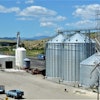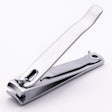
Education has always been one of our top priorities atFeed & Grain. We execute that mission through articles in this magazine and online, our webinar series atlive.feedandgrain.com, and the sponsorship of educational events throughout the industry.
This fall, as students across the country went back to school, the first time since March 2020 for some, I hope you’ll consider prioritizing education for your employees too.
Whether you’re involved in feed manufacturing, grain storage and handling, quality control or safety – there’s something available for everyone, most of which is accessible online from your own home or office.
Here are a few of my recommendations, available to members of the associations that provide each opportunity:
■GEAPS 501, Management Basics for Grain Facility Supervisors, outlines and explains the core duties of most managers, ranging from budgeting, accounting and insurance to maintenance, safety, regulatory compliance and effective employee management.
■AFIA Food Safety Modernization Act Qualified Individual Training Videohelps meet the FSMA requirement to train “qualified individuals” who manufacture, process, pack or hold animal food to ensure those employees are qualified to perform their duties.
■AFIA/KSU-500 On-Demandoffers select content from its “Fundamentals of Feed Manufacturing” online course and makes it available in smaller segments to view on-demand at a time that best fits any employee’s schedule. The modules include narrated presentations and knowledge checks.
■NGFA Universityis the training section of National Grain and Feed Association which offers courses and videos covering technical aspects of the grain, feed, export and processing industry. Courses available on safety, trade rules, and the Barge Digital Transformation (BDT) Project.
Investing in employee education is not only critical to their personal growth, but your company’s future. Employees engaged in ongoing training develop more confidence, skills and communication — all qualities needed for your company’s next generation of leaders. ■





















